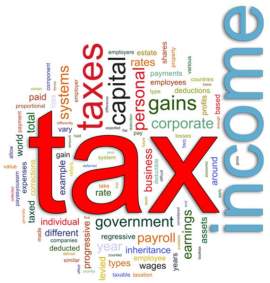
How Businesses Should Handle Their Taxes

Businesses, no matter the size, are all subject to federal taxation. Depending on the size of the company, whether it be small businesses or mid-to-large caps, the IRS will demand the appropriate filing of various forms.
All forms associated with business taxation can be found at the IRS website. The IRS website also provides detailed instructions on how to file such forms, as well as a section which contains all IRS forms download. At the IRS website a user will be able to download the actual forms and observe how they correlate to a business's needs.
The form and size of the business in question will determine which taxes are levied, the appropriate amount owed, and the applicable IRS form. The IRS subdivides the types of business taxes into four distinct groups:Income tax, Self-Employment tax, Employment taxes, and Excise taxes. Each class of taxation requires the filling of different forms and is documented in detail at the IRS website.
In addition to the varying forms and levies, the IRS has also categorized businesses into:sole proprietorship, partnerships, corporations, S corporations (pass federal tax responsibilities to shareholders), and limited liability companies. Depending on the make-up of the LLC, the company will file an individual tax return, a corporation tax return, or a partnership tax return.
For clarity's sake we will divide the different types of taxes and list the appropriate forms used for each type of business.
Income Tax-All businesses except partnerships (files an information return) are mandated by federal law to file an income tax return. The form used depends on the type of business in question. Essentially making it a "pay-as-you-go tax", the federal income tax must be paid as the business earns or receives income during the year. Listed below are the types of businesses and the appropriate forms used to file income tax.
Sole Proprietorship (according to the IRS website)-
1040 US individual tax return (specifically Schedule C)
Form 1040 (Profit or loss from Business) or Schedule C-EZ
Form 1040-Net Profit from business
Corporations (according to the IRS website)-
1120, U.S. Corporation Income Tax Return (IRS forms download available at IRS website)
S Corporation (according to the IRS website)-
1120S
1120 Sch-K-1 (IRS forms download available at IRS website)
Self-Employment Tax-A tax levied for individuals who work for themselves. The Self-Employment tax is paid for the use of social security and Medicare. This form of tax is only relevant for a sole proprietorship or some forms of limited liability companies. An individual pays the Self-Employment tax using the 1040 form under schedule SE. The individual will owe this tax if he/she meets one of the following requirements.
If net earnings from self-employment exceed $400.
If work was done for a church or church-controlled organization that elected a social security or Medicare exemption.
An individual is subject to the SE tax if he/she received $108.28 or more in wages from the church or affiliated organization.
Employment Taxes-If a company has employees they are responsible for certain tax responsibilities which must be paid and filed appropriately. Employment taxes include:social security and Medicare taxes, Federal income tax withholding, and Federal unemployment tax.
Partnerships (according to the IRS website)-
Form 941, Employer's Quarterly Federal Tax Return
Form 943, Employer's Annual Federal Tax Return (for agricultural employees)
Form 940, Employer's Annual Federal Unemployment Tax Return
Form 8109-B, Federal Tax Deposit Coupon
Individual partners in a partnership must file form 1040 Individual Income Tax Return Schedule E, Supplemental Income and Loss (All IRS forms download available at IRS website)
Corporations (according to the IRS website)-
1120-W Estimated Tax for Corporations
Form 941, Employer's Quarterly Federal Tax Return
Form 943, Employer's Annual Federal Tax Return (for agricultural employees)
Form 940, Employer's Annual Federal Unemployment Tax Return
Form 8109-B, Federal Tax Deposit Coupon (All IRS forms download available at IRS website)
S Corporations-
Form 941
Form 943
Form 940
Form 8109-B (IRS forms download available at IRS website)
Excise Taxes-The following forms are used for excise taxes and apply to certain types of corporations depending the manufacturing, sale, equipment used, and payment received of certain products.
Form 720 (Quarterly Federal Excise Tax Return) consists of broad categories of taxes:environmental taxes, air transportation and communication taxes, fuel taxes, tax on the sale of heavy trucks, trailers, or tractors, and manufacturers taxes on the sale and use of various articles.
Form 2290 (Heavy Highway Vehicle Use Tax) -Tax applied to businesses that use heavy trucks, buses, or trailers on public highways. The tax applies to vehicles which have a gross weight of 55,000 lbs or over.
Form 730 (Monthly Tax Return for Wagers)-applies to businesses which accept wagers or conduct a wagering lottery.
Form 11-C (Occupational Tax and Registration Return for Wagering)-taxes the use of various excise programs such as motor fuel.
NEXT: The Administrative Role of the IRS





















